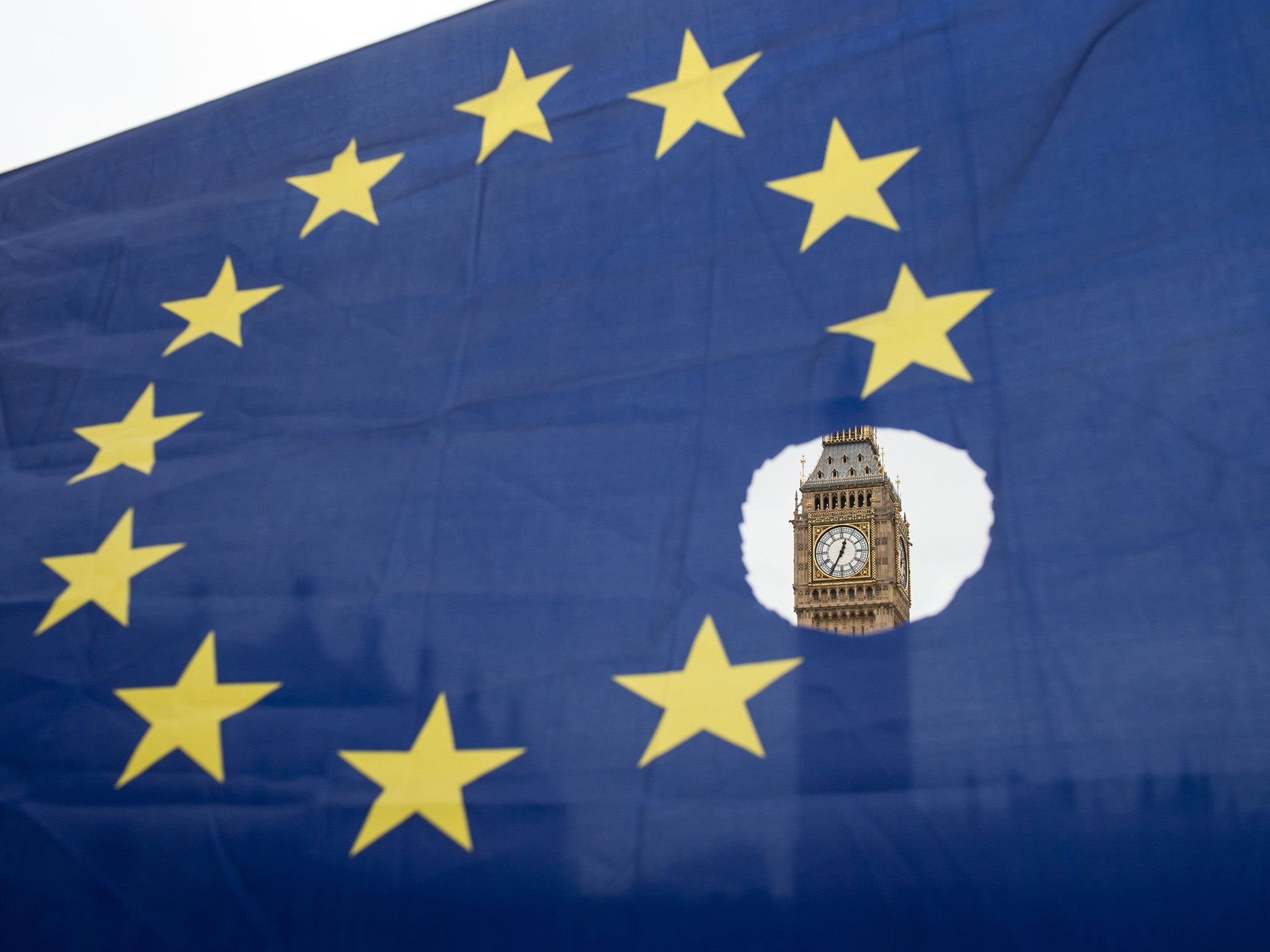Repeal Bill: What is it? Everything you need to know
Today the Government will publish the Repeal Bill – one of the most important pieces of legislation in Britain’s exit from the European Union. Here The Independent answers some key questions on the landmark bill

Your support helps us to tell the story
From reproductive rights to climate change to Big Tech, The Independent is on the ground when the story is developing. Whether it's investigating the financials of Elon Musk's pro-Trump PAC or producing our latest documentary, 'The A Word', which shines a light on the American women fighting for reproductive rights, we know how important it is to parse out the facts from the messaging.
At such a critical moment in US history, we need reporters on the ground. Your donation allows us to keep sending journalists to speak to both sides of the story.
The Independent is trusted by Americans across the entire political spectrum. And unlike many other quality news outlets, we choose not to lock Americans out of our reporting and analysis with paywalls. We believe quality journalism should be available to everyone, paid for by those who can afford it.
Your support makes all the difference.What is the Repeal Bill?
Ahead of the Conservative conference in autumn 2016 the PM announced her proposal for a “Great Repeal Bill” to end supremacy of EU law in Britain. It will annul the 1972 European Communities Act (ECA), which gives EU law instant effect in the UK and prevent a legal “black hole” existing after Brexit.
The aim for this legislation to is to convert all EU requirements into British law as soon as the UK exits the bloc. While it will convert all EU law and directives onto the UK’s statue book in an extensive copy-and-paste exercise, ministers – and future governments – could technically seek to scrap individual pieces of legislation if they so desired. It is expected to pass through Parliament at the same time as negotiations take place in Brussels.
So, what happened to the “Great” Repeal Bill?
The term “Great Repeal Bill” was used by the Prime Minister in her party conference speech in Birmingham last year but when it was introduced in the Queen’s Speech in June it was referred to simply as the “Repeal Bill”.
What is the 1972 European Communities Act?
The UK Parliament passed the European Communities Act in 1972 which gave instant effect to EU law. This means if there is a clash between an act of UK Parliament and EU law, EU law will always succeed. The European Court of Justice (ECJ) interprets EU law with judgments that were binding on all member states.
When will it happen?
The draft legislation was published on Thursday and MPs will begin a series of debates on Friday. MPs and peers in the Lords will then get the chance to vote on the bill through the normal parliamentary procedures.
What will the bill mean?
The legislation will end the jurisdiction of the European Court of Justice in the UK. As EU laws are debated there is likely to be a large number of requests for changes from MPs, peers and third parties, however it is not yet clear how negotiations will play out.
Concerns have been raised as to whether changes to EU law could put workers’ rights and environmental standards, which had protections under EU law, at risk. However, Mr Davis has previously stressed this is not the aim, saying: “To those who are trying to frighten British workers, saying, ‘When we leave, employment rights will be eroded’, I say firmly and unequivocally, ‘no they won’t’.”
Could it be blocked?
Scotland’s Brexit minister suggested last year that Holyrood could vote against the bill. Mike Russell said legislation to transpose all EU law applying to the UK into domestic law would require the consent of the Scottish Parliament, where the majority of MSPs are against it. Mr Russell said: “A piece of legislation such as Theresa May is now promising, this Great Repeal Act, will require the approval of the Scottish Parliament. A legislative consent motion will be required.
“Presently there is a majority against that Repeal Bill, that is absolutely obvious.”
While the bill will most likely be passed through the House of Commons, it may face tougher opposition at the House of Lords. Labour has, so far, not indicated whether it will vote with the Government but has consistently said it will not attempt to frustrate the Brexit process. The party, however, is likely to attempt to attach dozens of amendments to the bill, including protections of workers’ rights and environmental causes.
Join our commenting forum
Join thought-provoking conversations, follow other Independent readers and see their replies
Comments